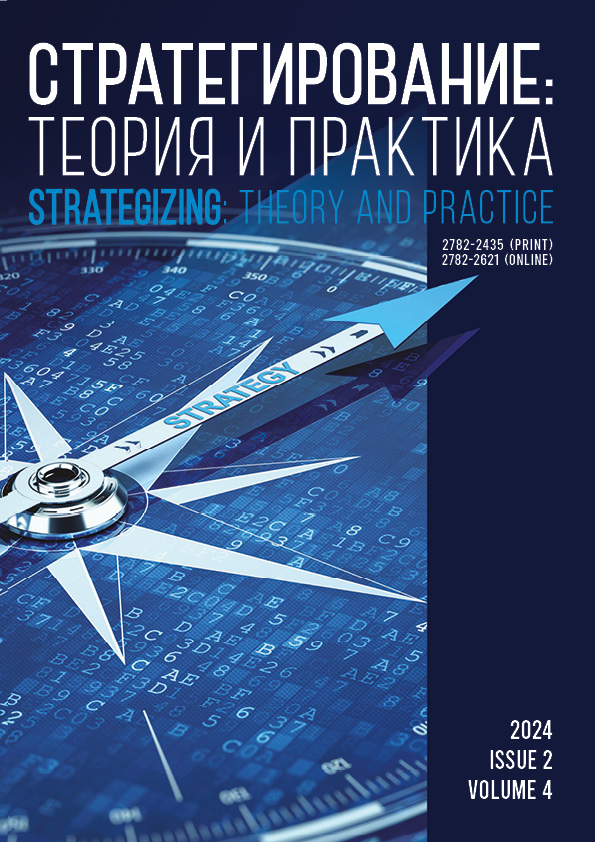Moscow, Russian Federation
employee
Moscow, Russian Federation
Moscow, Russian Federation
The growing severity of global climate change increases public environmental awareness. As a result, green financing has become a prospective area of financial services that attracts attention of investors, policymakers, and other stakeholders. Green financing means using financial tools and mechanisms to provide financial support for a green and low-carbon economy, as well as to promote environmental protection, sustainable development, and resource efficiency. Green finance not only introduces social capital into the green industry and the green economy, but also optimizes the allocation of social resources and creates new points of economic growth. This article reviews the current state of green financing in China. The authors analyzed the related development processes, defined the key challenges, and proposed some policy ecommendations.
green finance, financial development, sustainable development, social development
1. Bobylev SN, Kiryushin PA, Koshkina NR. New priorities for the economy and green finance. Economic Revival of Russia. 2021;67(1):152–166. (In Russ.) https://doi.org/10.37930/1990-9780-2021-1-67-152-166
2. Kvint VL. To the analysis of the formation of a strategy as a science. Vestnik CEMI. 2018;(1). (In Russ.) https://doi.org/10.33276/S0000121-6-1
3. Kvint VL, Novikova IV, Alimuradov MK. Alignment of global and national interest with regional strategic priorities. Economics and Management. 2021;27(11):900–909. (In Russ.) https://doi.org/10.35854/1998-1627-2021-11-900-909
4. Nikonorov SM, Eliseev EA. Attraction of “green” investments in the waste processing industry. Menedzhment v Rossii i za rubezhom [Management in Russia and Abroad]. 2020;(5):91–99. (In Russ.)
5. Nikonorov SM, Mamiy IP, Zhou C. Problems and prospects of achieving carbon neutrality in the context of sustainable development of the Chinese economy. Innovation and Investment. 2023;(1):26–32. (In Russ.)
6. Bartik TJ. The effects of environmental regulation on business location in the United States. Growth and Change. 2006;19(3):22–44. https://doi.org/10.1111/j.1468-2257.1988.tb00473.x
7. Cao D, Zhao X, Yang W. Development mechanism and policy innovation of China's green economy. Chinese Journal of Population, Resources and Environment. 2012;(5):48–54. (In Chinese)
8. Cao M, Wang W. Prospects for the development of green bonds. China Finance. 2015;(10):14–16. (In Chinese)
9. Cao M. Reflections on the innovation of green finance management system and mechanism in China. Environmental Protection. 2016;(10):15–17. (In Chinese)
10. Deng X. Review of green finance research. Journal of China University of Finance and Economics. 2012;(6):67–71. (In Chinese)
11. Dong L, Zhang H. Environmental objectives in the 2030 agenda for sustainable development and its implications on the world and China in environmental governance. Chinese Journal of Population, Resources and Environment. 2016;(1):8–15. (In Chinese)
12. Dong X. Green finance: existing problems and system construction. Contemporary Economic Management. 2015;(9):94–97. (In Chinese)
13. Chen Y-L, Shih Y-H, Tseng C-H, Kang S-Y, Wang H-C. Economic and health benefits of the co-reduction of air pollutants and greenhouse gases. Mitigation and Adaptation Strategies for Global Change. 2013;18:1125–1139. https://doi.org/10.1007/s11027-012-9413-3
14. Gray WB, Shabegian RJ. Pollution abatement cost, regulation and plant-level productivity. NBER Working Paper. 1995.
15. Guo C, Liu Y, Yang X. Investment and financing on China's environmental protection industry: problems and solutions. Chinese Journal of Population, Resources and Environment. 2015;(8):92–99. (In Chinese)
16. Sram RJ, Binkova B, Dostal M, Merkerova-Dostalova M, Libalova H, Milcova A, et al. Health impact of air pollution to children. International Journal of Hygiene and Environmental Health. 2013;216(5):533–540. https://doi.org/10.1016/j.ijheh.2012.12.001
17. Jeucken M. Sustainable finance and banking. The financial sector and the future of the planet. London: Routledge; 2001. 320 p.
18. Li Z. General idea about the new exploration of developing green economy in China. Chinese Journal of Population, Resources and Environment. 2013;(4):11–17. (In Chinese)
19. Liu Y, Pan Y, Chen G. Economic growth and environmental quality in an open economy – An empirical study based on Chinese provincial panel data. Journal of Shanghai University of Finance and Economics. 2006;8(6):50–57.
20. Ma J. Development and prospect of green finance in China. Comparison of Economic and Social Systems. 2016;(11):25–32. (In Chinese)
21. Ma J. On the creation of China's green financial system. Financial Forum. 2015;(5):18–27. (In Chinese)
22. Ma W. Opportunities and problems of green economy development. Business Forum. 2014;(2). (In Chinese)
23. Pan X. Green finance in China: Realistic dilemma and countermeasures. Modern Economic Management. 2017;(3):86–89. (In Chinese)
24. Salazar J. Environment finance: Linking two word. Financial Innovations for Biodiversity. Bratislava; 1998. pp. 2–18.
25. Sun Y, Jing P. A study on green transition mode and transition path of resource-based regions. China Soft Science. 2012;(12):152–161. (In Chinese)
26. Wang H. Current opportunities and challenges facing China in green economy development. Science and Technology Perspectives. 2014;(391). (In Chinese)
27. Wang Y, Zhang X. Building environmental finance from an ecological civilization perspective. Studies on Socialism with Chinese Characteristics. 2015;(2):96–100. (In Chinese)
28. Yang Y, Hao X, Yang Z. International best practices of green development and its inspiration for China. Journal of Xinjiang Normal University. 2017;(2):18–24. (In Chinese)
29. Yu L. Research on green finance development and innovation. Economic Issues. 2016;(1):78–81. (In Chinese)
30. Zhu D. New concept of green economy and consideration of deepening green economy studies in China. Chinese Journal of Population, Resources and Environment. 2012;(5):40–47. (In Chinese)






